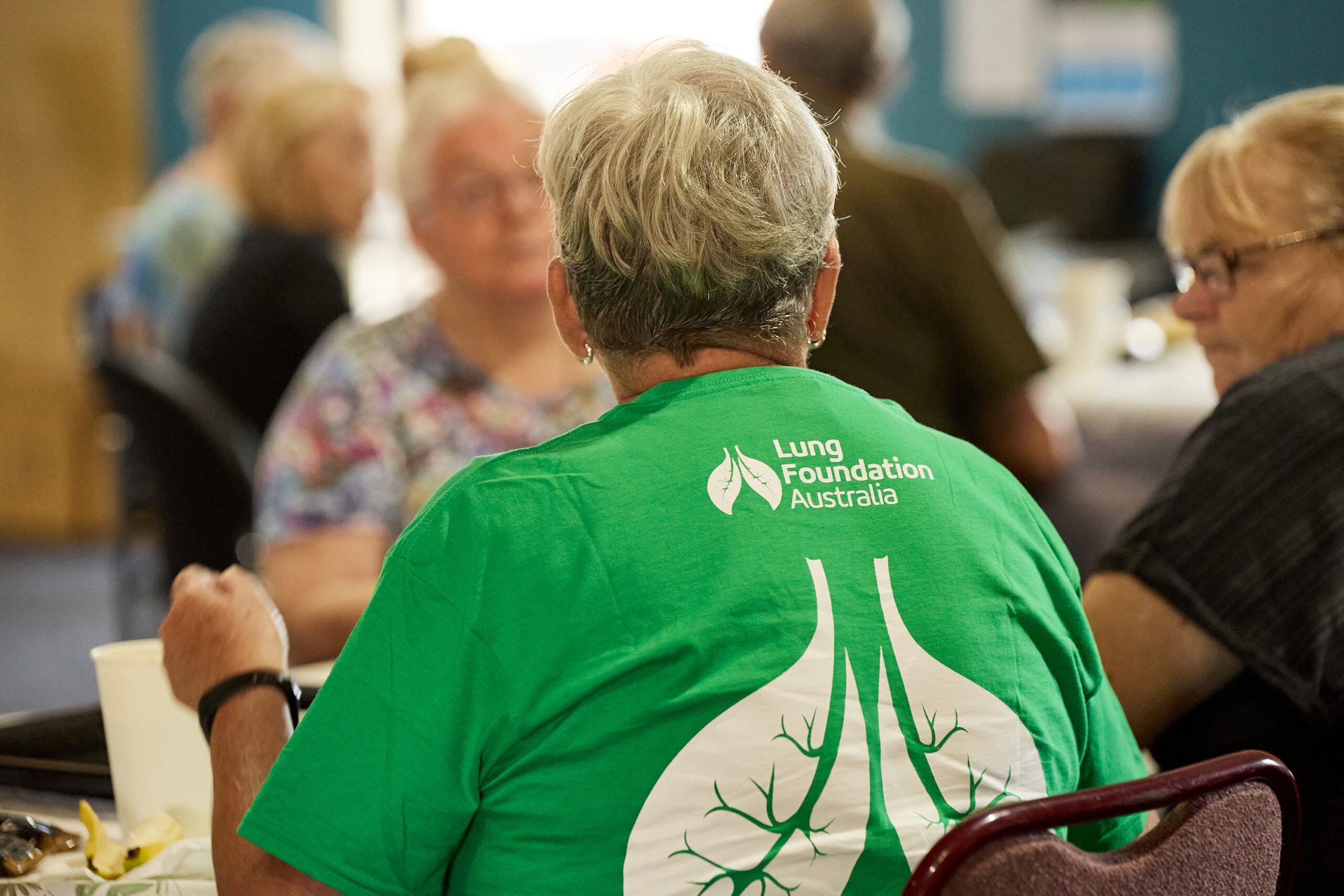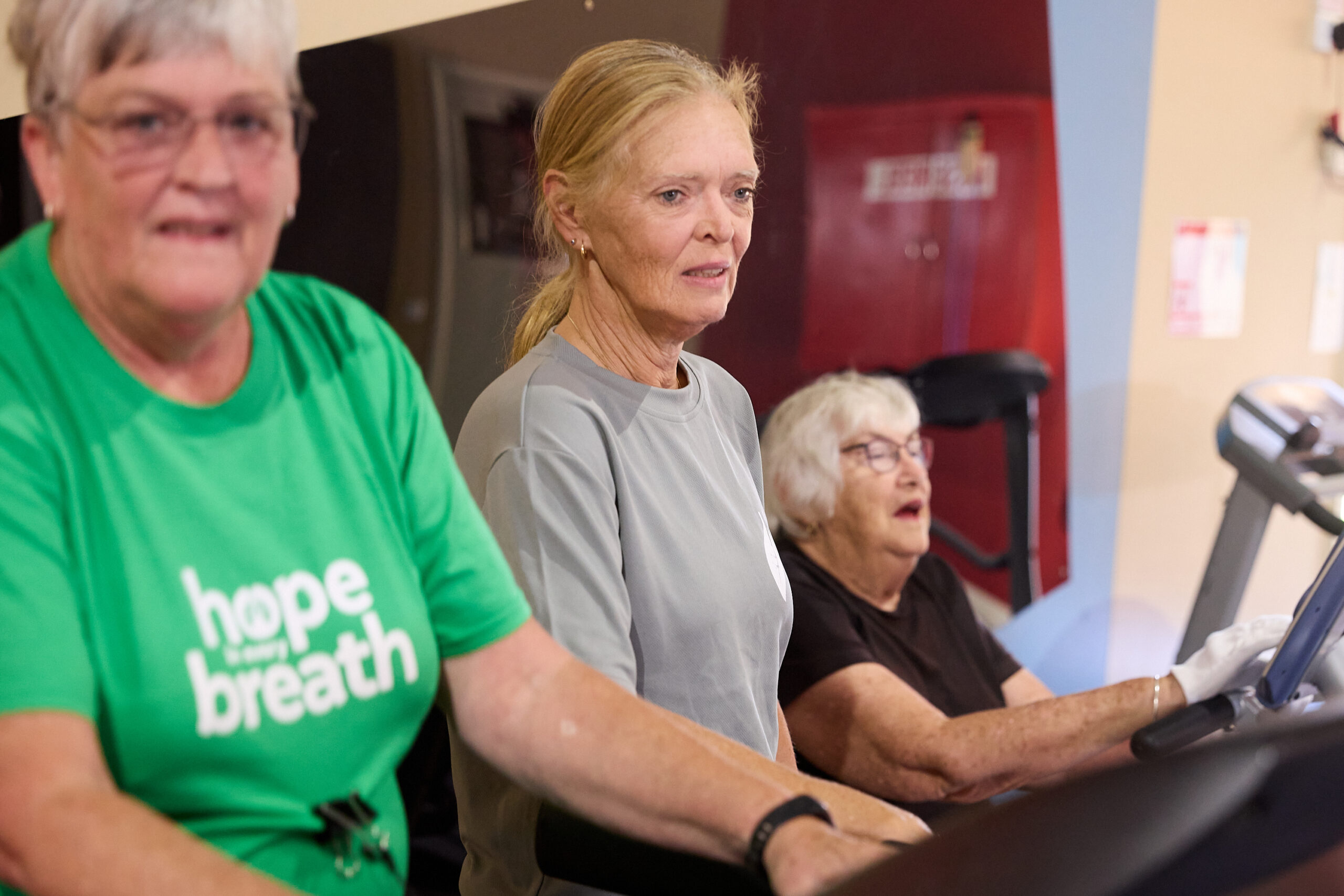Education Topics
Scientific evidence to support the content and structure of the education component of a pulmonary rehabilitation program is limited. Survey data and expert opinion have been used to identify recommended educational topics. Topic selection embodies patient-centred education as well as self-management intervention, including goal setting, engaging and supporting patients to develop self-
management skills and positively adapt behaviour.
Based on results from a survey* of patients who had completed a pulmonary rehabilitation program in Australia, the most important educational topics (in order) were:
- The role and correct use of medications.
- Breathing techniques / managing breathlessness.
- Physical exercise, including keep fit following PR.
- Nutrition / healthy eating.
- Information on diseases (e.g. what the lungs do, pathophysiology of disease).
- Coping with chronic lung disease, stress management and management of depression, anxiety and panic attacks.
These topics should form the basis of the education component of a pulmonary rehabilitation program. These topics should be covered early in the program.
The survey was conducted by The Australian Lung Foundation in 2000. The survey data were obtained from more than 200 patients with chronic obstructive pulmonary disease in Australia, who had attended pulmonary rehabilitation programs.

Other suggestions for topics have been derived from health care professionals, and are supported by clinical guidelines and consensus statements 14 15. The Lung Foundation’s COPD The Basics provides a detailed overview of Chronic Obstructive Pulmonary Disease (COPD) and how to manage the condition.
Other Education Topics
Other education topics may include16:
- Staying well with the disease and self management (including action plans)
- Interpreting tests (respiratory function tests and walk tests)
- Airway clearance techniques
- Energy conservation techniques.
- Continence issues.
- Sexuality issues.
- Swallowing issues.
- Community resources, advanced care directives and palliative care.
- Home Oxygen therapy
- Strategies to limit disease progression
- Management of co existing conditions
- Travelling with a lung condition
Additional Topics
Additional topics which may be relevant for those with interstitial lung disease are outlined below 10 11 12
- Accessing home care and support for patients and carers
- Overcoming fatigue
Delivery of education within a pulmonary rehabilitation program should be individualised for each patient. Not all education topics may be relevant or desirable for all patients and participation in group sessions may be voluntary to accommodate these needs.
Evaluating patient information needs and knowledge
Guidance for topics may also be derived from establishing the baseline knowledge of participants prior to commencing a program. A patient knowledge questionnaire, such as Bristol COPD Knowledge Questionnaire or Lung Information Needs Questionnaire may be used 8 9.
The format of the content and the level of detail in the education sessions should be determined based on the:
- needs of the participants
- availability of resources
- level of staff expertise
Educators should recognise different learning styles which may be present amongst patients and apply a range of teaching methods to accommodate this.

Delivery of education sessions is optimised by the inclusion of discussion and interaction between patients and healthcare professionals, and this may be further reinforced by hand on demonstration, peer to peer learning, self reflection, visual aids and handouts or guidance to available digital health information. Other online patient education tools such as C.O.P.E (COPD online patient education) could be considered an appropriate option for specific educational components to complement the PR program. Depending on the format of the PR program, education can be delivered face to face or via telephone or video conferencing and may include motivational interviewing techniques13.


